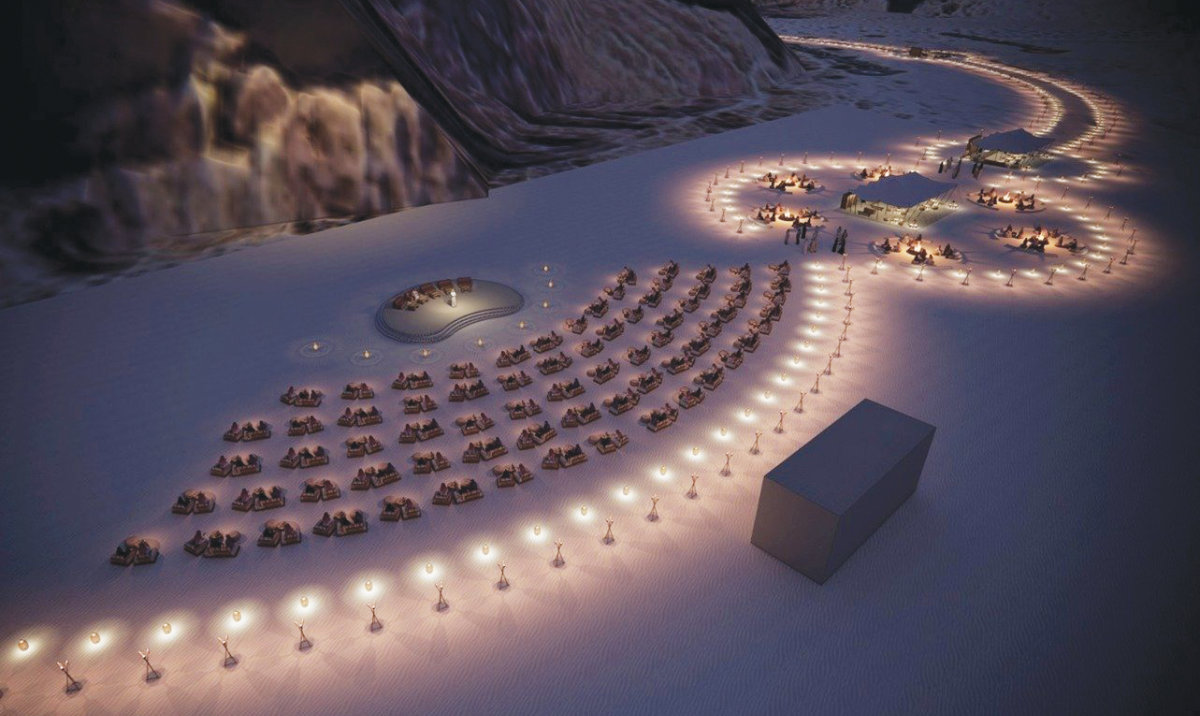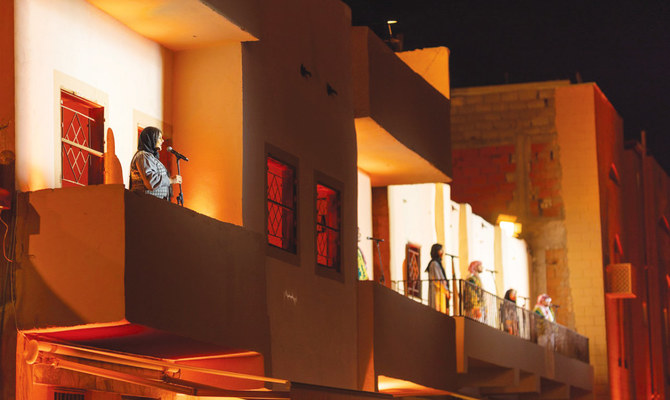RIYADH: Winter at Tantora, the region’s premier culture, art and music festival, is running until Jan. 27 with a jam-packed calendar of world-class activities and attractions.
The festival begins with the Tantora Celebration — running till Dec. 31 — which will transform AlUla Old Town into a space for performances, projection shows, cultural displays, and heritage experiences across 10 nights.
Musical experiences
Commemorating the richness of the Arabic language, the World of AlUla event, running until Jan. 21, will host workshops, exhibitions, talks and live performances. The event will explore the diverse facets of Arabic and its influence on art, literature, music and society.
The Word of AlUla’s workshops will be held across two locations — the scenic Daimumah Oasis and the buzzing Al-Jadidah Arts District.
Top musicians from Rouh Al-Sharq, an Egyptian choir group, will perform at the Shorfat Al-Jadidah event from Dec. 27 to 28. For this event, balconies along the Incense Road will be transformed into stages from where the singers will entertain the audience below.
Iconic Lebanese singer, Majida El-Roumi, will perform at Maraya on Dec. 29. With a discography spanning classic Arab hits, Lebanese folk songs, religious hymns, and patriotic anthems, El-Roumi has been a prominent figure in music since the 1970s.
Lovers of poetry should not miss the Poet’s Night on Jan. 5, featuring a diverse lineup of scribes and singers.

Poet’s Night on Jan. 5 will a diverse lineup of poets and singers under the starry sky.
AlUla Moments will host Abadi Al-Johar at Maraya Concert Hall on Jan. 12. The Saudi Arabia artist is one of the most renowned Khaleeji singers in the Gulf and has composed around 50 albums since the beginning of his musical career in 1968.
There will be a candlelight concert at the UNESCO World Heritage Site, Hegra, on Jan. 18, combining the elegance of classical music with creative set design. The Hegra Candlelit Classic will feature pianist and composer Ludovico Einaudi alongside several Saudi musicians.
The Swiss Orchestra will perform live at Mayara on Jan. 19. The Swiss Orchestra has dazzled global audiences since its 2018 debut with renditions of famous composers including Beethoven and Mozart.
Citrus festival
The long-awaited AlUla Citrus Festival will take place on Jan. 5 and 6 and Jan. 12 and 13, during the peak of the harvest season. Visitors can buy directly from farmers and find local family-owned businesses selling citrus-based products including soaps and jams.
AlUla produces an estimated 15,000 tons of citrus fruits annually, which represents 30 percent of the Kingdom’s total production. The governorate has 4,700 farms with more than 200,000 trees spread over 800 hectares.
Shopping
For those looking to shop for traditional items, the Tafoni Store located in Al-Jadidah Arts District will run from Jan. 9 to Feb. 25 and will showcase a selection from local and regional designers selling beauty, fashion, home and lifestyle pieces.
Sports
For the second year in a row, athletes of all abilities will get the chance to test their strength at the AlUla Trail Race on Jan. 11 and 12.
Runners will get to see the ancient city’s landscapes in various events including the 100 km Sharaan Trail, 50 km Hegra Trail, half-marathon Elephant Rock Trail, 10 km Oasis Trail and 1.4 km kids’ run.
AlUla will host the Richard Mille Desert Polo event at the Equestrian Village from Jan. 17 to 20. Eight teams will face off in a series of matches over four days.
For more information and to book tickets, check experiencealula.com.



























